
The future of unmanned flight is now as Mississippi State University’s world-class student researchers take the controls of a revolutionary new aircraft technology that's poised to change the world.



Mississippi State University student researchers are unleashing the power of unmanned aircraft systems, leading the way in a revolution that's redefining agricultural science, opening doors for industry and creating new careers.
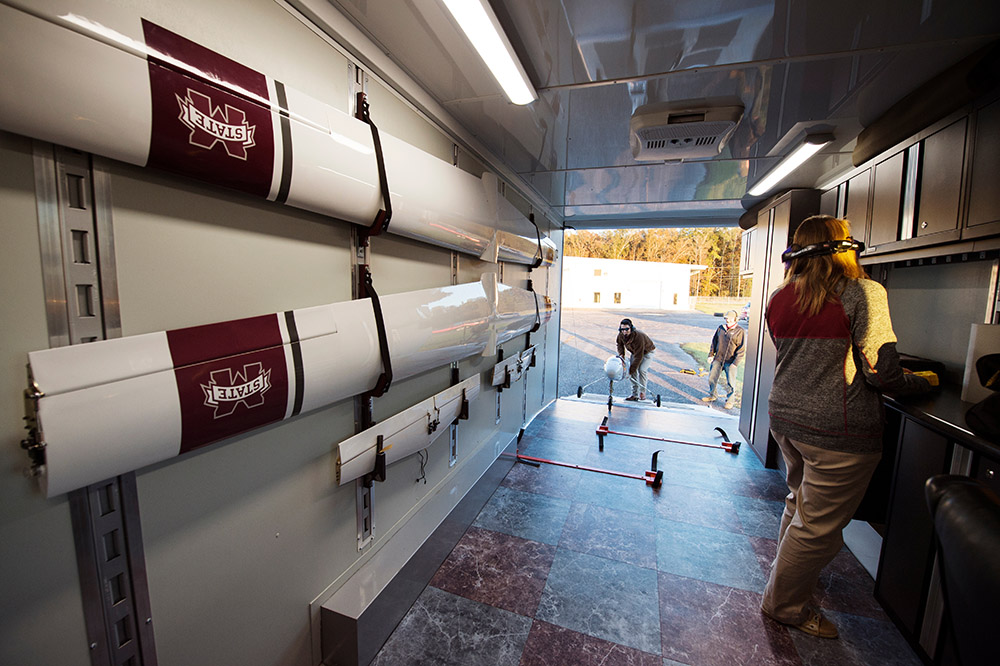
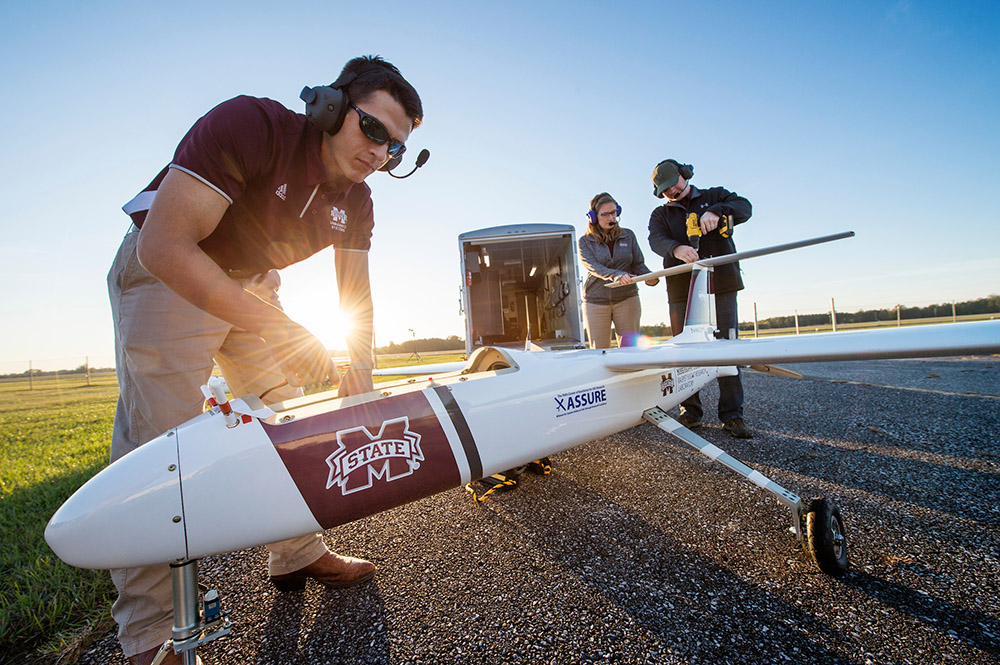
“Over the next five to 10 years, we will help fuel an aerospace revolution that will change our world,” says Julie Jordan, the university’s interim vice president for research and economic development.
As a National Center of Excellence for the Federal Aviation Administration, Mississippi State is leading a research team comprising 23 research universities and more than 100 government and industry partners. This Alliance for System Safety of UAS through Research Excellence is known as ASSURE, and the team’s central purpose is to write the rulebook for unmanned aircraft.
Expanding UAS technology means billions of dollars in economic impact across the country along with thousands of high-tech jobs. Through experience gained from the ASSURE center’s hands-on research and testing opportunities, MSU students are positioning themselves to fill these jobs.
Partnerships boost research and development opportunities for students, who collaborate with the National Aeronautics and Space Administration, Department of Defense, Department of Homeland Security, Department of Agriculture and other agencies. Doors are open for students to help develop recommendations on aircraft certification, flight standards and air traffic requirements; and to facilitate UAS technology transfer to other civilian and defense agencies.
Meanwhile, at MSU’s Raspet Flight Research Laboratory, students are collaborating with major corporations on research and development projects that are propelling the new industry forward. Safety, human-machine interface, maintenance standards, crash impacts – these are just a few of the considerations that must be explored and defined as students chart a flight plan for the commercial future of aerospace.
Through UAS technology, scientists are attempting to solve major world problems such as hunger by using unmanned aircraft to revolutionize farming techniques and improve crop yields through precision agriculture. Other applications include emergency response, biofuel and clean fuel technologies, law enforcement activities and environmental monitoring.
For MSU, being on the cutting edge of industry is nothing new. As Mississippi’s premier research university and a nationally recognized technology incubator, MSU has provided workspace, technical training and assistance with product development and research for numerous industries over the past decade.
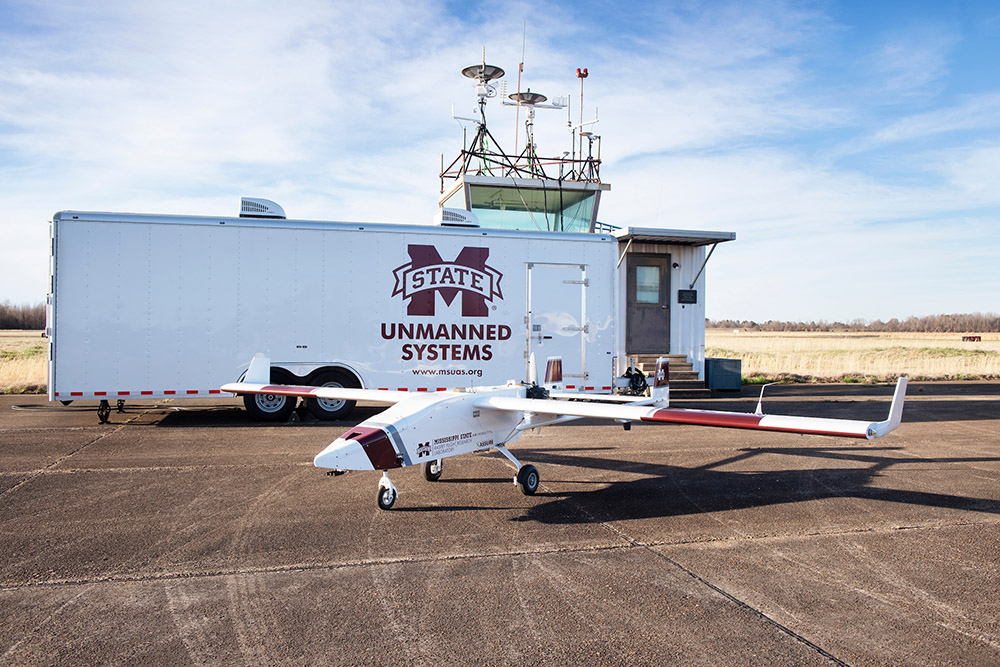
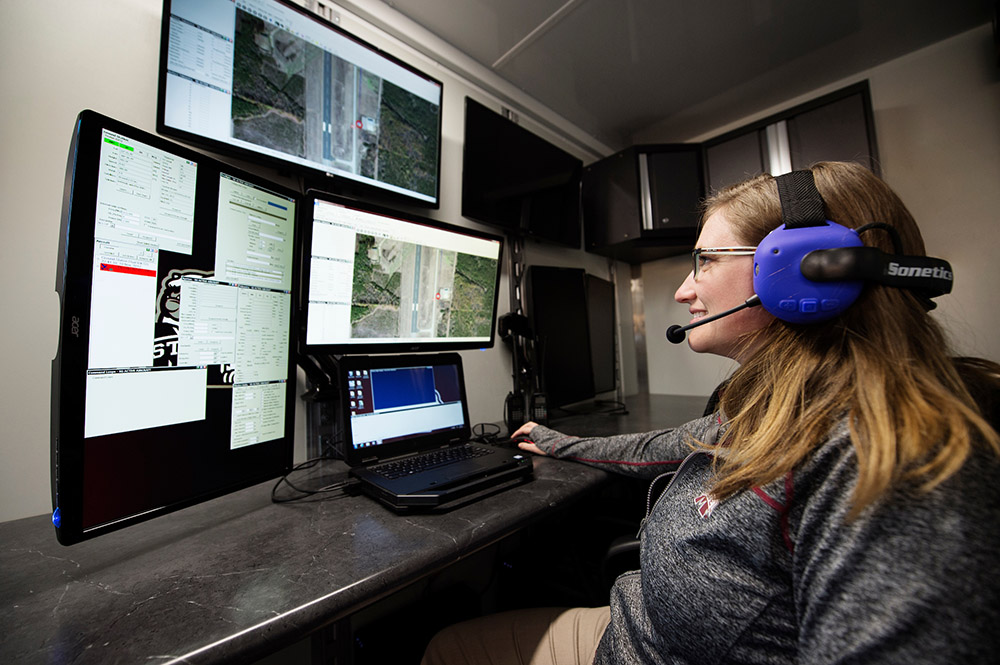
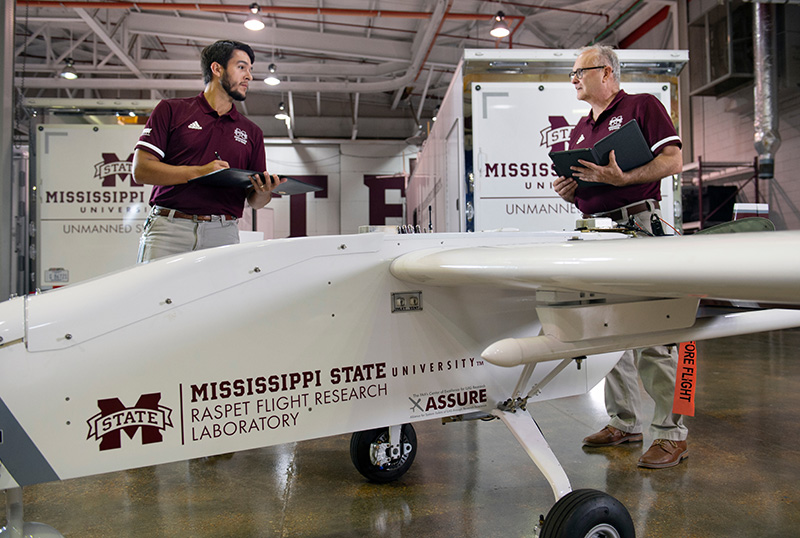
These efforts and Mississippi State researchers’ expertise have helped companies such as Airbus Helicopters, Aurora Flight Science, GE Aerospace and Stark Aerospace establish bases in Mississippi, bringing more than 700 high-tech jobs to the state.
Testing UAS for use in aerial surveillance, agriculture crop management and other applications provides real-world, hands-on experience for students while honing their design skills and expanding their imaginations.